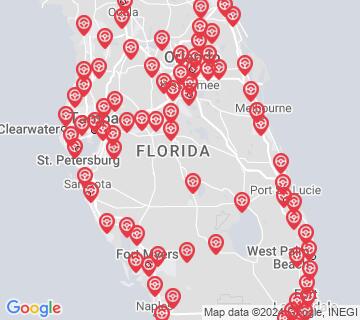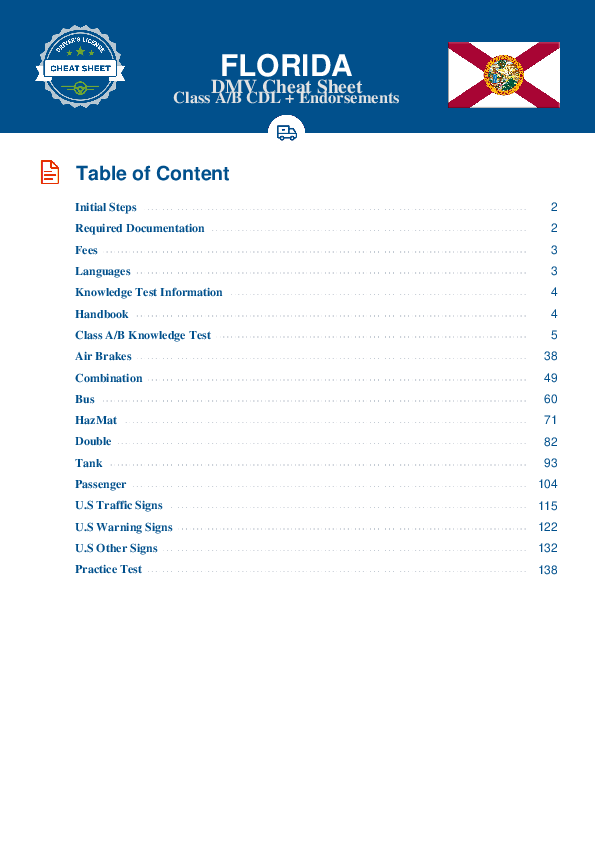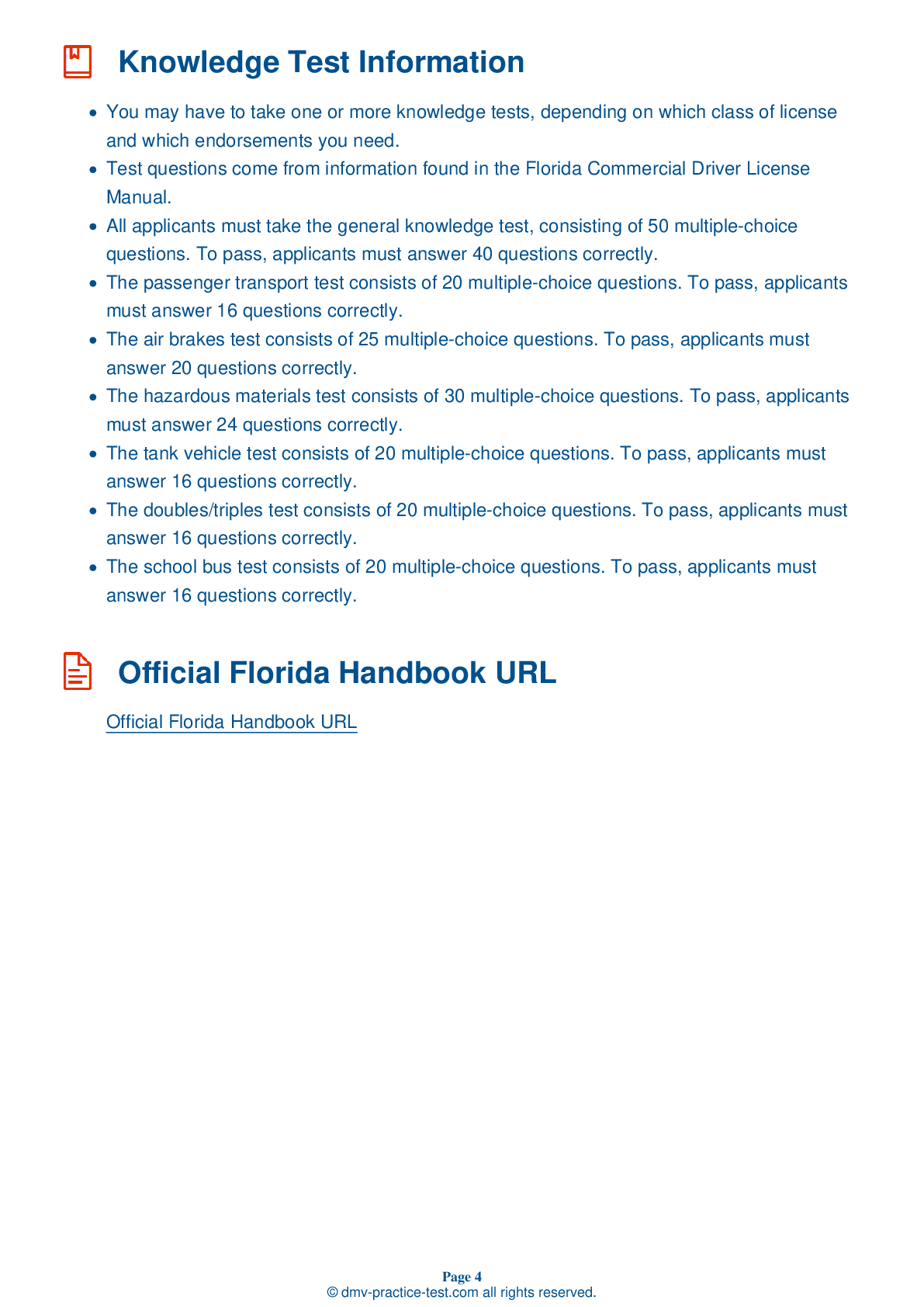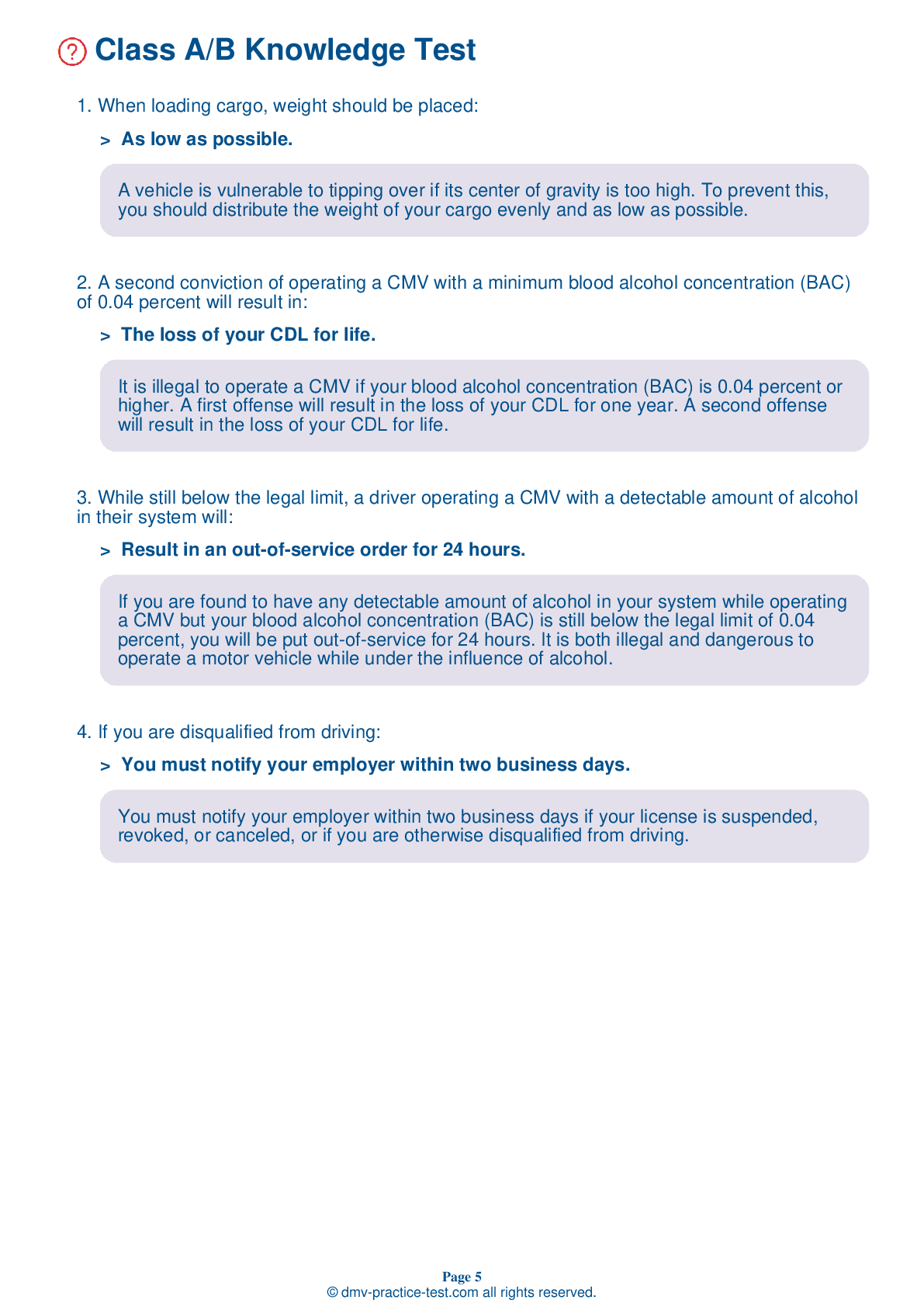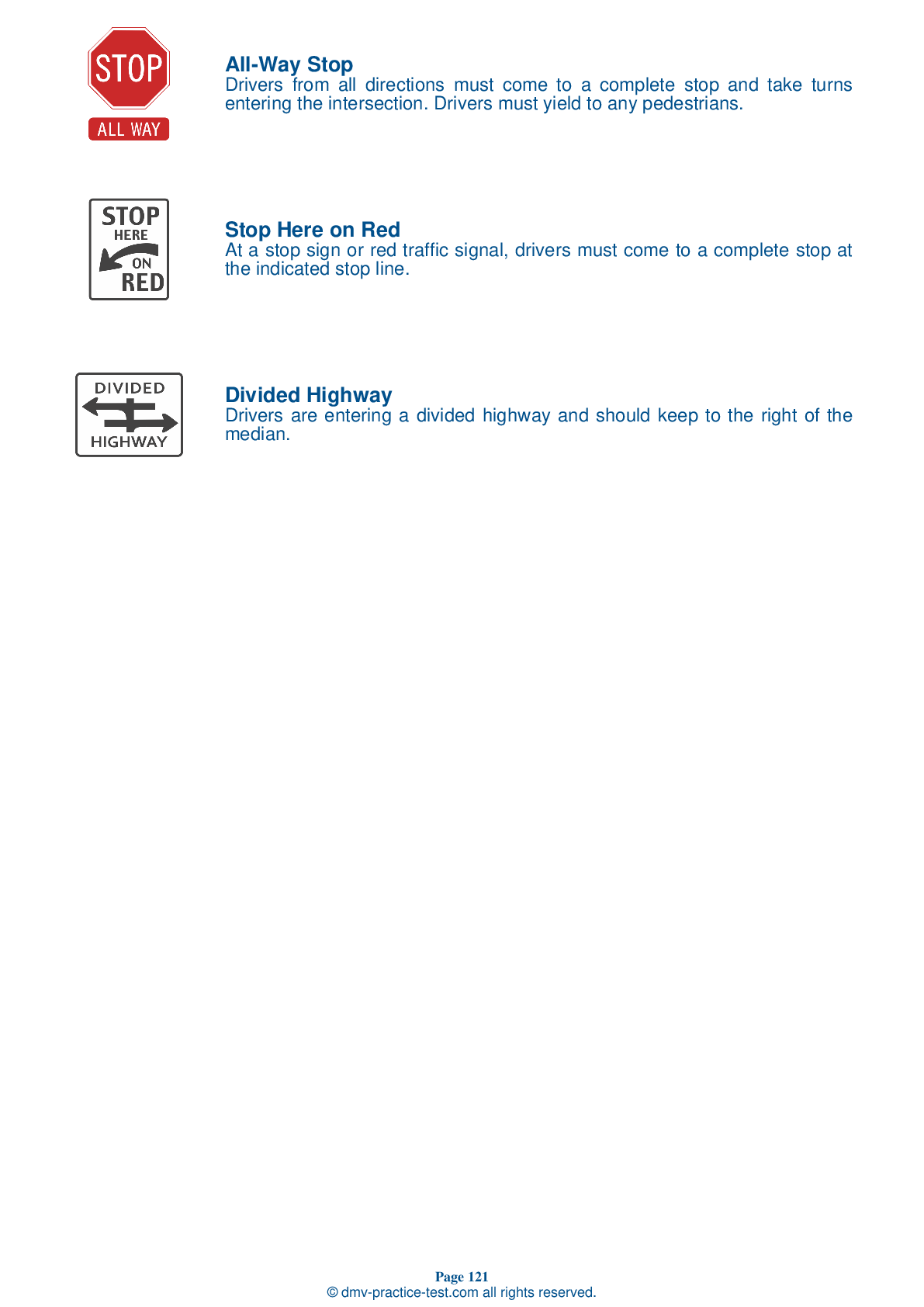Air Brakes #1
Air Brakes Endorsement Test | Florida 2026 #1
Train for FREE online with our Florida CDL air brake test. The official exam test consists of several obligatory parts, with all of them checking your knowledge of different blocks of road rules. If you need to obtain a FL Class A/Class B driver license in 2026, practice as much as possible. Free sample tests published on our website will help you check and improve your knowledge and boost your grades. Please bear in mind that the requirements for CDL may vary from state to state.
25
20
20
1 . Why do you need to drain air tanks regularly?
To remove bad air from the tanks
Compressed air in an air brake system usually contains a certain amount of water and compressor oil. The water and oil can damage the brakes if left to accumulate in the system. Tanks must be drained regularly to remove this build-up.
2 . If using air tanks with manually operated drains, how often should you drain the tanks?
Once every 3,000 miles
To prevent the build up of oil and water in a vehicle's air tanks, manually operated air tank drains should be used at the end of each day of driving.
3 . A dual air brake system:
Has two separate air brake systems, but uses a single set of controls.
A dual air brake system has two separate air brake systems that use a single set of brake controls. One system typically operates the regular brakes on the rear axle or axles. The other system operates the regular brakes on the front axle.
4 . How many air storage tanks are used in an air brake system?
The number varies.
Air storage tanks are used to hold compressed air. The number and size of air tanks in an air brake system varies among vehicles.
5 . An alcohol evaporator in an air brake system:
Some air brake systems include an evaporator that introduces alcohol into the system. The alcohol can help prevent ice from forming within the system.
6 . Before starting down a hill, be sure to:
Switch into a low gear.
Before starting down a hill, be sure to switch into a low gear. Gravity will increase your vehicle's speed as you travel downhill.
Search the best driving school in your neighbourhood
2026 Florida | Frequently Asked Questions
A CDL Class A license in Florida allows the holder to operate any combination of vehicles with a Gross Combination Weight Rating (GCWR) of 26,001 pounds or more, provided the vehicle(s) being towed have a GVWR of 10,001 pounds or more. It covers vehicles like tractor-trailers, truck and trailer combinations, and livestock carriers.
With a Class A CDL license, you can operate vehicles such as tractor-trailers, truck and trailer combinations, tank vehicles, and livestock carriers. This license also covers flatbeds, and vehicles towing trailers or other vehicles over 10,000 pounds. However, additional endorsements may be required for certain types of vehicles like school buses or tank trucks.
To obtain a Class A CDL license in Florida, you must be at least 18 years old (21 for interstate driving), hold a valid Florida driver's license, and pass a vision test. You'll also need to pass a general knowledge test, a combination vehicle test, and a skills test which includes a pre-trip vehicle inspection, basic controls, and on-road driving.
To qualify for a Class A CDL license in Florida, you must be at least 18 years old for intrastate driving (within Florida only) and at least 21 years old for interstate driving (across state lines). You also need to have a valid regular driver's license and pass both written and skills tests.
While a Class A CDL license covers a broad range of large vehicles, specific endorsements are required for certain types of vehicles or cargo. For example, to drive a tanker vehicle, school bus, or hazmat vehicle, you need a Tank (N), School Bus (S), or Hazardous Material (H) endorsement respectively. Each endorsement requires an additional knowledge test.
The Class A CDL skills test encompasses three main areas. The pre-trip vehicle inspection tests your ability to assess if your vehicle is safe to drive. The basic controls test assesses your ability to control the vehicle, back up, and perform turns. The on-road driving test evaluates your driving skills in various traffic situations, including left and right turns, intersections, railway crossings, and highways.
Yes, there are certain limitations for Class A CDL license holders. For instance, they may be restricted to driving automatic transmission vehicles if they took their skills test in such a vehicle. They might also be restricted from driving tank or passenger vehicles or carrying hazardous materials unless they have the appropriate endorsements. Additionally, all CDL holders must comply with federal hours-of-service regulations.
Yes, it is possible to take the written Class A CDL test in languages other than English in Florida. The Florida Department of Highway Safety and Motor Vehicles offers the test in Spanish. However, the Federal Motor Carrier Safety Administration requires that all CDL holders can read and speak English sufficiently to converse with the general public, understand highway traffic signs and signals, respond to official inquiries, and make entries on reports and records.
Yes, accommodations can be made for individuals with disabilities taking the Class A CDL written test in Florida. These may include providing the test in an audio format or allowing extra time. It's necessary to request these accommodations ahead of time from the Florida Department of Highway Safety and Motor Vehicles (DHSMV).
Yes, if you fail the Class A CDL written test in Florida, you can retake it. However, you must wait until the next day to do so. If you fail the test three times, you're required to complete a driver education course before you can attempt the test again. Always make sure to review the areas where you struggled before retaking the test.
